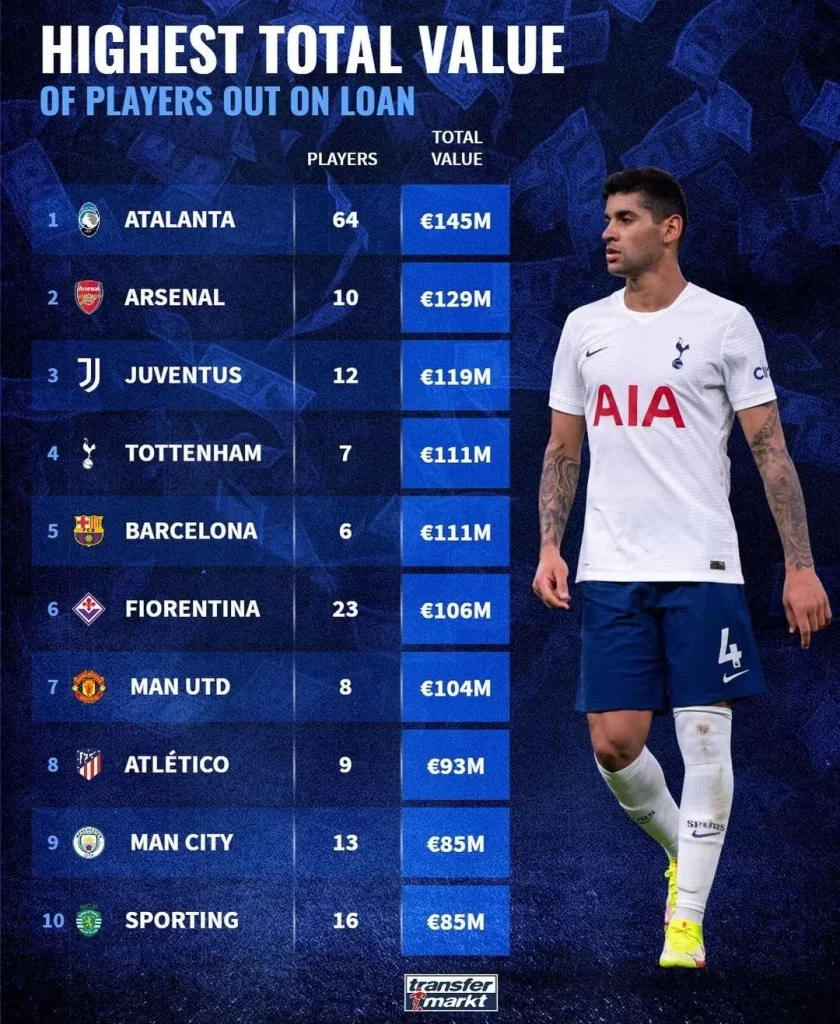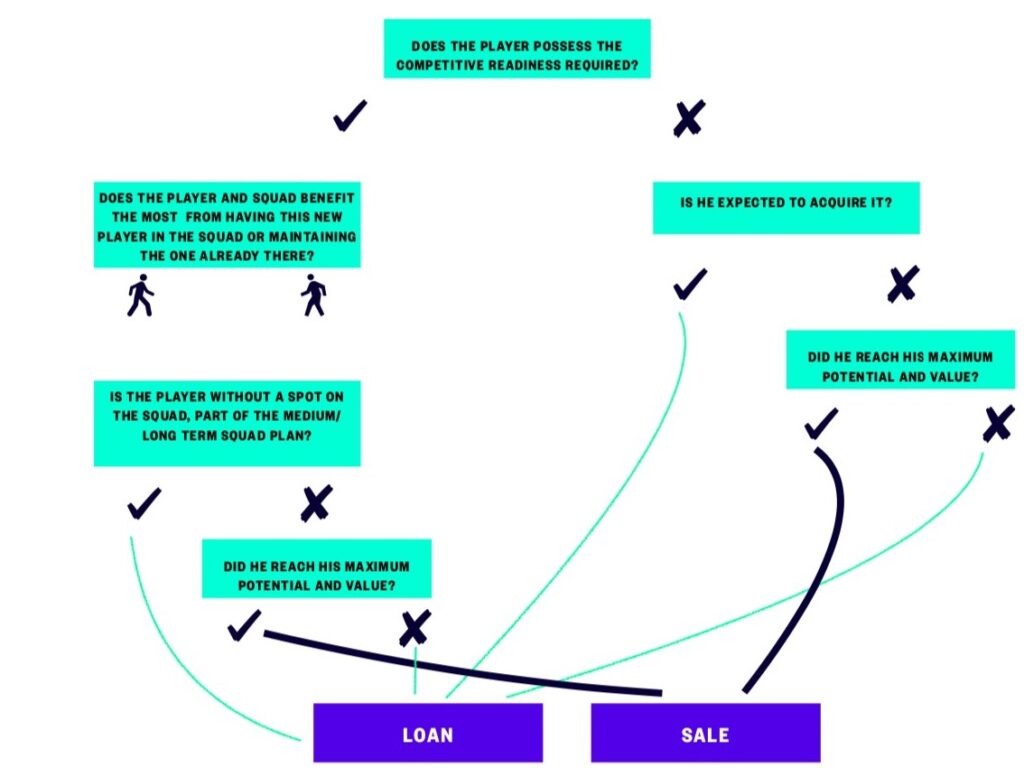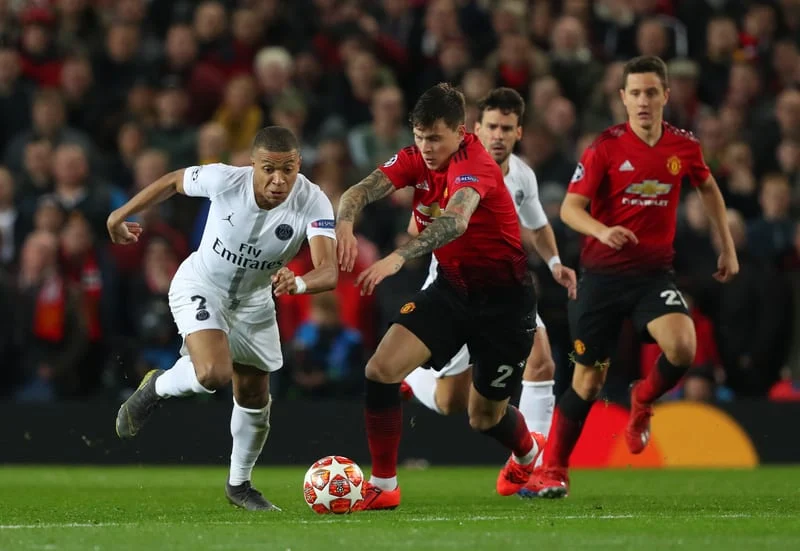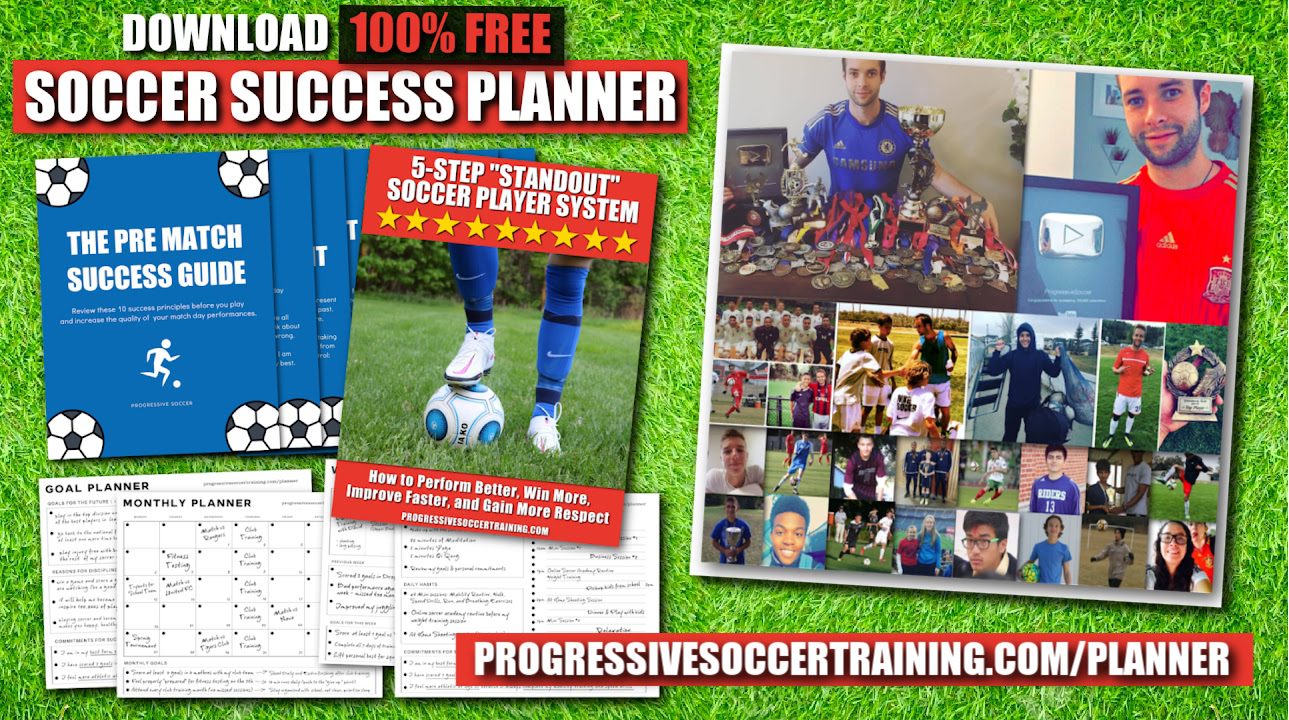How Do Soccer Loans Work? Complete Guide – 2025
If you’re wondering: how do soccer loans work – this is for you.
In the world of soccer, loans are more than just financial transactions; they are integral to a player’s journey and a club’s strategic planning.
Soccer loans, often referred to as loan deals, represent a fascinating and dynamic aspect of the sport.
n this article, we dive into the intricacies of soccer loans, exploring how do soccer loans work, and why they are essential components of the beautiful game.

How Do Soccer Loans Work
In this article, you can read through all 5 sections or skip ahead to the topics that are most important to you. Make sure to stick around until the end, watch the video tutorials, and download your special free gift that is guaranteed to make you a better player.
- How do player loans work in soccer?
- Why do soccer players go on loan?
- What is the soccer loan process?
- What are the soccer loan rules?
- How to become a better soccer player, improve faster & achieve more!
I hope this article gives you a clear answer to the question: how do soccer loans work? Let’s go!

How Do Player Loans Work In Soccer?
Soccer player loans, commonly referred to as loan deals, are arrangements that allow a player to temporarily join another club for a specified period, typically to gain more playing time and experience.
So how do player loans work in soccer? These deals are based on agreements between the player, the club he is currently contracted to (the parent club), and the club that wishes to borrow the player.
The loan typically includes details such as the duration, a possible loan fee, salary arrangements, playing time expectations, and, in some cases, a recall clause.
The parent club often uses loan deals to provide valuable playing opportunities for its players while the borrowing club benefits from the addition of the player’s skills and abilities to their squad.
During the loan period, the player is expected to work towards specific development goals outlined by the parent club, and regular communication between the two clubs helps assess the player’s progress.
At the end of the loan, the player returns to his parent club, where he may compete for a spot in the first team or be loaned out again for further development.

Why Do Soccer Players Go On Loan?
Soccer players go on loan for several reasons, and there are several benefits to this practice:
- Gaining Playing Time: Young or less experienced players often struggle to secure a spot in their parent club’s first team due to strong competition or lack of opportunities. Loan spells at other clubs provide these players with a chance to gain more playing time, which is crucial for their development.
- Developing Skills: Playing in different environments, leagues, and systems can help players improve their skills and adapt to new styles of play. Loan spells can accelerate a player’s development, enhancing their abilities and experience.
- Proving Themselves: Players who are not getting opportunities in their parent club may use loan spells to showcase their abilities to their parent club’s coaching staff and scouts. A successful loan period can increase their chances of breaking into the first team upon their return.
- Reducing Squad Overcrowding: For parent clubs, loaning out players can help manage squad overcrowding and maintain a balanced squad. It allows the club to retain ownership of the player while providing them with an opportunity to develop elsewhere.
- Financial Benefits: Some loan deals include loan fees paid by the borrowing club, which can provide financial benefits to the parent club. Additionally, the borrowing club may sometimes cover a portion of the player’s salary during the loan period.
So why do soccer players go on loan? Loan spells in soccer provide an avenue for players to gain valuable playing time, develop their skills, and prove themselves to their parent clubs.
It’s a mutually beneficial arrangement that allows players to progress in their careers while enabling parent clubs to manage their squad effectively and invest in their players’ development.

What Is The Soccer Loan Process?
The soccer loan process involves several key steps and negotiations between the player, the parent club, and the borrowing club. Here is an overview of the typical soccer loan process:
- Negotiations: The parent club and the borrowing club negotiate the terms of the loan, which include the loan duration, any loan fee, salary arrangements, playing time expectations, and any recall clause. The clubs need to reach a mutual agreement on these terms.
- Player Consent: The player’s consent is crucial, as they must agree to the loan deal. If the player is not willing to move to the borrowing club, the loan will not proceed.
- Loan Period: The player joins the borrowing club for the specified duration of the loan. During this time, the player is expected to meet the agreed-upon playing time and performance expectations.
- Potential Recall: If a recall clause is included in the loan agreement, the parent club may choose to recall the player before the end of the agreed loan period, usually with a notice period. This is typically done if the player is needed due to injuries or other circumstances.
- End of Loan: At the end of the loan period, the player returns to the parent club. Depending on the player’s development and performance during the loan spell, they may compete for a spot in the parent club’s first team or be loaned out to another club for further development.
The soccer loan process is a structured and well-defined procedure, with specific agreements and conditions in place to ensure that the loan benefits both the player and the involved clubs.
It provides opportunities for players to develop their skills and gain experience while allowing parent clubs to manage their squad and invest in the growth of their young talents.

What Are The Soccer Loan Rules?
Soccer loan rules can vary depending on the governing body, competition, and country, but there are some common principles and regulations that often apply to players on loan:
- Eligibility: The player’s eligibility to participate in matches is subject to the rules of the competition in which they are competing. Different competitions may have different eligibility criteria, including age restrictions and registration deadlines.
- Playing Time: Some loan agreements include clauses that specify the player’s expected playing time or the number of matches they should participate in. This ensures that the player receives the intended experience and development opportunities.
- Recall Clause: Some loan deals include a recall clause that allows the parent club to recall the player before the end of the agreed loan period. The recall process is usually subject to a notice period and specific conditions.
- Salary and Expenses: The loan agreement often includes provisions regarding the payment of the player’s salary during the loan period. The borrowing club may assume full responsibility for the player’s wages, or the two clubs may share the financial burden.
- Playing for Multiple Clubs: In some countries and competitions, players on loan may be allowed to play against their parent club if certain conditions are met. However, they are often ineligible to play against their parent club.
It’s important to note that specific loan rules and regulations may vary from one football association, league, or competition to another, so it’s crucial for all parties involved to be aware of and adhere to the specific rules that apply to their situation. These rules are typically outlined in the loan agreement and are subject to the jurisdiction of the relevant governing body.

As soccer continues to captivate fans worldwide, the intricate web of loan deals adds depth and drama to the sport, offering players the opportunity to become stars, and clubs the means to thrive in a dynamic and competitive landscape.
In understanding how soccer loans work, we gain a greater appreciation for the complexities and strategies that drive the sport forward, offering a glimpse into the ever-evolving world of soccer management and player development.
Hopefully you found this article about how do soccer loans work helpful.
How Loans Work In Soccer
This video explains how loans work in soccer, the purposes, variations and FIFA regulations of the temporary loan of players in the football transfer market.
Common Questions
Here are some common questions related to how do soccer loans work:
What does it mean to be on loan in soccer?
Being on loan in soccer refers to a temporary arrangement where a player is sent from one club to another for a specified period of time.
The player’s original club allows the player to play for the other club, typically to gain more match experience, develop their skills, or simply because they are not needed by the original team at that moment.
Players on loan usually continue to be contracted to their parent club but can gain valuable playing time elsewhere, especially if the parent club does not have space in their starting lineup.
How long do loans last in soccer?
The length of a loan in soccer can vary, but it typically lasts for a season, often spanning from one transfer window to the next.
Some loans can be short-term, lasting only a few months or for a specific tournament, but loans for a full season are more common, especially in leagues where player rotation and game time are crucial.
There can also be options for extending or cutting short the loan based on mutual agreements between the involved clubs and the player.
Can players on loan play against their club?
Yes, players on loan can generally play against their parent club unless there is a clause in the loan agreement prohibiting it.
Often called a “no-compete” clause, it is included to prevent conflicts of interest, particularly in cases where the loaned player could affect the outcome of a match with their former club.
However, this clause is not always present, and players on loan are sometimes eligible to play against their original team if there is no specific restriction in place.
What is the loan rule in the Premier League?
In the Premier League, there are specific rules regarding loan players. The number of loaned players a club can have is limited to a certain number of players at any given time, with regulations in place to prevent teams from excessively relying on loan agreements.
Typically, a club can loan a player from another club, and they can also loan out players from their own squad. However, some restrictions exist to ensure that loan players cannot dominate the team’s roster, and there are often additional limitations for domestic versus international loans.
Players loaned from other English clubs may also not play against their loaning club, depending on their agreement.

SOCCER PLAYERS
Want to become a better soccer player?
Watch this 3-minute video about discovering your true potential
Learn how to improve your skills, mindset, soccer IQ, and fitness—no matter your level. Start playing with confidence, earning respect, and impressing coaches today.
About Coach Dylan
I used to struggle with confidence in soccer, feeling slow, weak, and unmotivated. Coaches overlooked me, and friends made fun of my skills. At one point, I even quit.
But I decided to take control of my development. Through hard work, I transformed my game, earned league titles, awards, a college scholarship, and international caps.
Now, I share my lessons and help others improve through my YouTube channel (1/2 million subscribers), soccer coaching and personal training.

How To Play Soccer Better
Struggling to make progress in soccer or stay organized with your training?
The Soccer Success Planner will help you stay focused, motivated, and increase your chances of achieving your goals in soccer.
Success doesn’t happen accidentally. Use it to set clear goals, create a plan of action, and take control of your future. Learn more about the Soccer Success Planner.

How To Become A Better Soccer Player
Struggling to improve in soccer or unsure how to train effectively? Want to stand out and earn respect from teammates and coaches?
The Online Soccer Academy will get you better results in less time.
Thousands of players have already transformed their game in just 60 days. Learn more about how the online soccer academy.

Related Posts
Here are some related posts to help you gain more knowledge and helpful advice:
How to become a better soccer player
Coach Dylan
Progressive Soccer
Thank you for reading this article:
How Do Soccer Loans Work? Complete Guide – 2025
